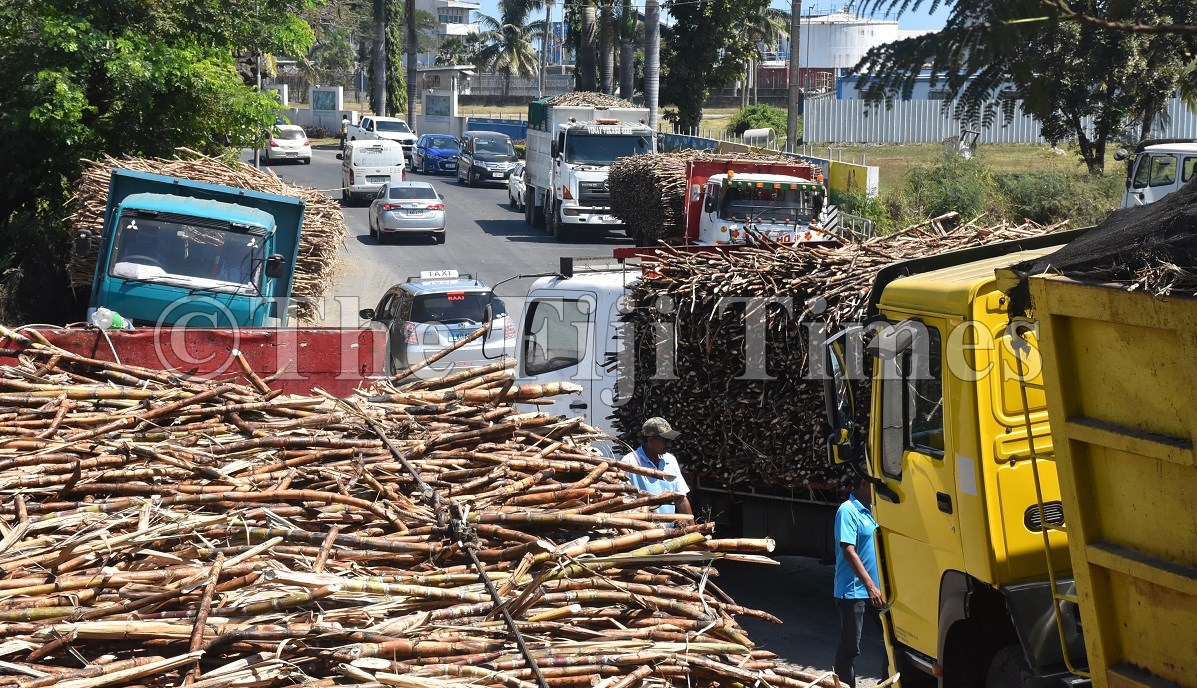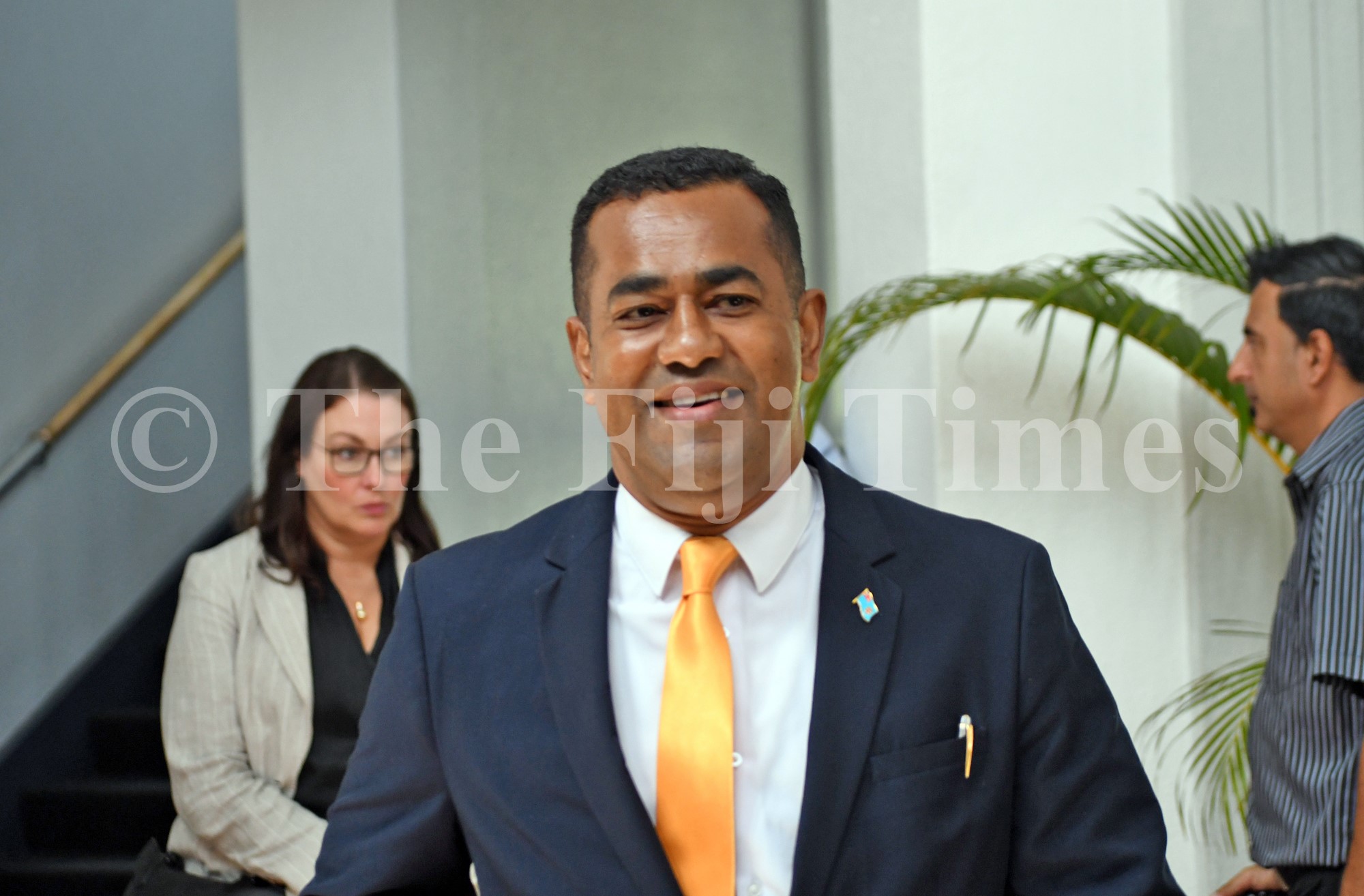The modus operandi of the FijiFirst government is abundantly clear.
First, spew fire and brimstone both in and outside Parliament in an attempt to sugar-coat the truth.
Certainly not the Kit Kats the Prime Minister was seen handing out this week to students.
Second, play the blame game.
Blame climate change for the declining sugar industry; blame the Opposition for politicising the industry (they forget they are also politicians).
Blame SODELPA for backing non-renewal of leases and eviction of cane growers (when the Prime Minister has been Minister for iTaukei Affairs for 14 years).
Simply, blame everyone and everything under the sun – except the Fiji First Party.
Stop sugar-coating
This Government expects the people to wash their hands of the reality and support them.
But as hard as the Prime Minister and his motley crew might try, this is not happening.
The “fact of the matter”, as the PM’s loyal Attorney-General and Economy Minister might say, is that the politics of freebies, fear, dictatorship and micro-management under two-man rule is now showing its negative effects.
And the biggest sugar-coated destruction that the PM and his right-hand man have brought is to the sugar industry – the backbone of our economy for more than a century and supporting the livelihood of some 200,000 citizens either directly or indirectly.
The result – no locally based industry to at least mitigate the effects of the COVID-19 pandemic on the economy after the virtual standstill of tourism, which has been the primary focus of both the Bainimarama and the FijiFirst government.
Consequences
The consequences of destroying the industry that was the pride of Fiji has been devastating due to: –
– the military government reneging on commitments to the EU in 2009 to hold democratic elections under the 1997 Constitution by March 2009. This resulted in the loss of about $350 million in direct grants, towards alternative livelihoods;
– haphazard reforms like dissolving the Sugar Cane Growers Council and concocting a “strategic plan” for Fiji Sugar Corporation that has only speeded up its race towards insolvency;
– Government being the judge, jury and executioner in terms of decision making and policy enforcement within the industry;
– massive decline in sugarcane production from 3.226 million tonnes in 2006 to 1.73 million tonnes in 2020;
– massive decline in sugar production from 310,000 tonnes in 2006 to 152,000 tonnes in 2020;
– increase in TCTS from 10.4 tonnes to 11.38 in 2020 despite mill upgrades (TCTS is the number of tonnes of cane required to make one tonne of sugar – the lower the number, the more efficient);
– average cost of production, harvesting and delivery of cane to the mills at a minimum of $60, primarily due to neglect of the railway network, despite massive injection of subsidies for cane growers; and
– Average yield per hectare decreasing from 58 tonnes in 2006 to 45 tonnes on Viti Levu and 48 tonnes on Vanua Levu in 2020.
Pumping in millions of taxpayers’ dollars over the years has not yielded results. Why?
Because of micro-management by Government and total removal of democratic processes, particularly denying cane growers their fundamental right to elect their representatives.
This is tantamount to enslavement of growers.
It is only through their representatives that growers can hold the industry accountable.
Failure costs dearly
The massive failure by the Bainimarama government to resuscitate the industry, by increasing sugarcane and sugar production, has contributed in a large measure to FSC now basically becoming technically insolvent.
Any business has a core objective.
FSC’s core business is to crush enough cane and produce sufficient sugar to make profit from the share of proceeds it receives under the Denning Award.
FSC’s auditors clearly point out in FSC’s 2020 annual report that the corporation is unable to operate as a viable entity without government support.
This is despite FSC recording a profit of $21.9 million – a profit on paper only, thanks to a Government grant of $50m.
So it is really a profit created by the taxpayers, not FSC.
In the last financial year ending May 31, 2020, the taxpayers of Fiji, directly and indirectly, contributed $248.8m to FSC.
This was in the form of:
– conversion to equity of a government loan of $173.8m;
– a $50m grant; and
– $25m paid by government to Fiji National Provident Fund as guarantor of two loans of $15 million and $10 million that FSC could not repay.
There are other serious concerns pointed out by the auditors despite the conversion of $173.8 m of loan into equity.
The first is that FSC’s liabilities exceed its assets by $144.4m.
This means that even if all of FSC’s assets – including its mills – are sold, the corporation would still fall significantly short of clearing all its debts.
Secondly, FSC has debt repayment commitments of $124.2m during the current financial year ending on May 31, 2021.
How can FSC service its debt commitments when it did not have money in the last financial year to pay $25m to FNPF, compelling government to step in and clear the loan?
Thirdly, FSC is likely to require further funding to meet its working capital requirements, capital expenditure and possible future operating losses.
So the taxpayers of Fiji are keeping FSC afloat.
Is this why FSC chairman Vishnu Mohan is saying they are just selling lazy assets?
What happens after that?
FSC and leadership
Government’s inability to turn around FSC and increase sugar cane crop yields, despite pumping in millions of dollars, is a painful example of a leadership that manufactures and churns out useless rhetoric to camouflage its weaknesses.
Two examples come to mind.
On August 31 last year National Federation Party president Pio Tikoduadua asked the PM, who is also Minister for Sugar, to explain the reasons for FSC’s mills recording a high TCTS.
It was a valid question.
June to August is regarded as the optimum period in the season with cool and dry weather increasing sugar content in cane.
The PM gave a lengthy lecture about TCTS.
He labelled Mr Tikoduadua “short-sighted and small-minded” for asking the question when the season was progressing.
When asked a supplementary question by the Mr Tikoduadua if the frequent breakdowns of Lautoka and Ba mills was contributing to high TCTS, the PM started talking about the “Bainimarama Boom”.
He talked about various government initiatives like help to farmers, subsidised bus fares, pension and free milk, adding that “in Kadavu they don’t like free milk because the six-year-olds and seven-year-olds are still breastfeeding”.
He then went on a personal tirade against Mr Tikoduadua saying, “twice I sacked you from my office and I got you back, that is the Bainimarama Boom”.
What has free milk and his so-called sacking of Mr Tikoduadua got to do with the TCTS and sugar industry?
Come the end of the 2020 season the TCTS was an unacceptably high 11.38.
Is this the “boom” that the PM was talking about last August?
The second example is Mr Bainimarama’s senseless comments on September 30, 2016, in Parliament.
This was after the NFP leader Prof Biman Prasad pointed out how the sugar industry was affected by lack of Parliamentary bipartisanship and the absence of a parliamentary select committee on sugar.
The PM said of Prof Prasad: “What little knowledge he has of the sugar industry, Madam Speaker, is in my little pocket here”.
The result, four years later – a pocket-sized sugar industry under the Prime Minister’s leadership.
For more than 14 years Mr Bainimarama has been leading the nation.
For more than 12 years he has been the Minister for Sugar.
It is clear from the massive decline that the industry is infested with people who cannot differentiate the root of a cane stalk from its top.
At the cross-roads
Simply, the state of the staggering sugar industry shows how this nation has been governed.
This is why it is at the cross-roads at a critical time when all hands are needed on deck to steer the nation as it grapples with COVID-19 and economic depression.
In his last address to the UN General Assembly in September 2016 as US President, Barack Obama appropriately described the role of a leader.
It is highly relevant given what we are facing.
“I believe in a liberal political order,” he said.
“An order built not just through elections and representative government, but also through respect for human rights and civil society, and independent judiciaries and the rule of law”.
On economic growth, he said: “I do believe there’s another path – one that fuels growth and innovation, and offers the clearest route to individual opportunity and national success.
“It does not require succumbing to a soulless capitalism that benefits only the few … it means respecting the rights of workers so they can organise into independent unions and earn a living wage.
“It means investing in our people – their skills, their education, their capacity to take an idea and turn it into a business.”
Need I say more!
- Kamal Iyer is the political administrator of the National Federation Party. The views expressed are his own and not necessarily shared by this newspaper.





